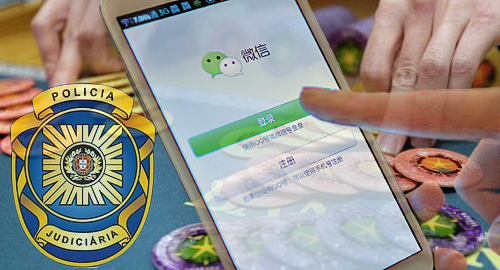 Macau authorities have broken up what appears to be an illegal proxy betting operation serving mainland Chinese gamblers.
Macau authorities have broken up what appears to be an illegal proxy betting operation serving mainland Chinese gamblers.
On Tuesday, Macau Judiciary Police responded to a tipoff by raiding a residential complex in the Nam Van district, arresting seven men suspected of operating an online gambling ring. The operation reportedly used the WeChat social messaging platform to communicate real-time gaming information from an unidentified Macau casino to gamblers on the Chinese mainland.
On Thursday, police spokesman Tam Weng Keong told local media that the ring had a reliable stable of about 40 gamblers who wagered with them on a daily basis. The gang reportedly recruited their customers via a dedicated WeChat group.
The ring is believed to have been in operation for only about one month, but still managed to handle total wagers of around HKD 10m (US $1.3m) within that period. Minimum wagers were HKD 300 ($38) while the gang placed no limits on maximum bets.
Tam later told GGRAsia that the betting operators sent “two to three members” to actually gamble in the unspecified casino, while the game play would be broadcast via the WeChat group. Tam said a study of the seized communications devices indicated that the overseas gamblers were given about 70 seconds in which to decide how to wager after having the game play info relayed to them.
Tam also said the police had yet to detect any signs that the suspects were connected to or collaborating with Macau casino junket operators.
In May 2016, Macau attempted to put a stop to proxy betting in local casinos by prohibiting the use of phones at gaming tables. However, one month after the ban, at least three junket operators were reportedly circumventing the ban by equipping their agents with wireless earpieces, which were sometimes concealed behind an agent’s long hair.
Proxy betting’s contribution to Macau’s overall gambling market was never formally quantified but analysts estimated it accounted for up to 10% of total VIP turnover. Proxy betting remains wildly popular at casinos in the Philippines, where it is believed to account for up to half of all VIP junket revenue.